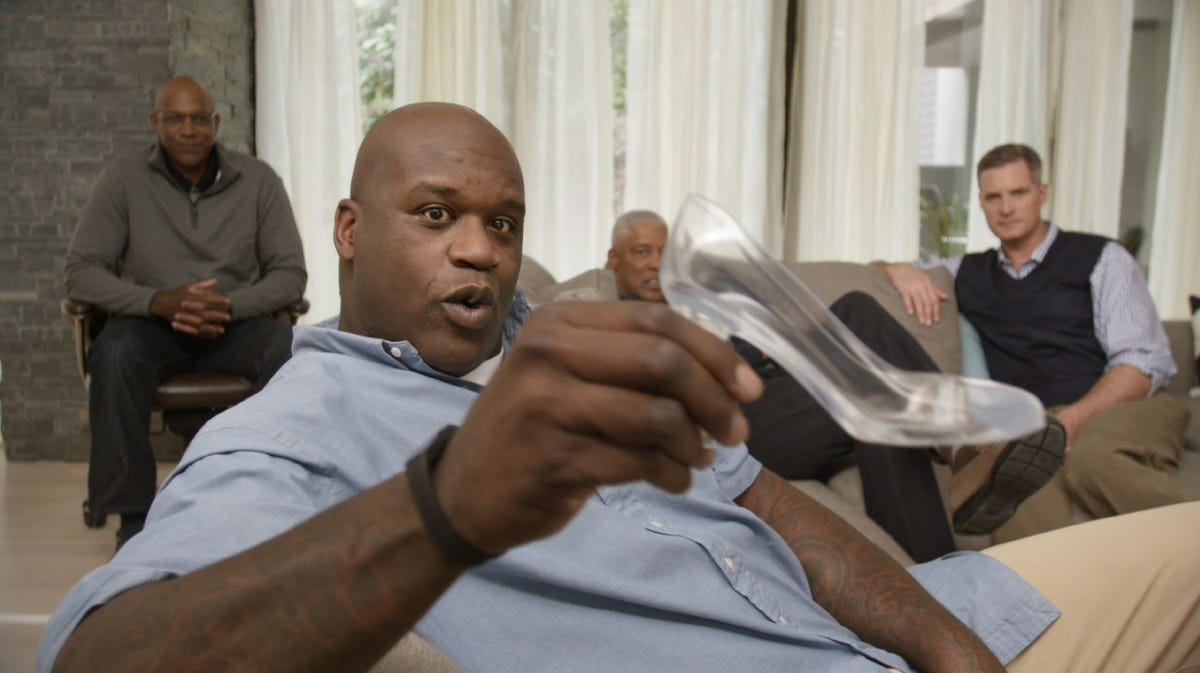
AT&T
The price war between wireless carriers maybe cooling off, but their war of words still rages on.
AT&T, the nation’s second-largest wireless carrier by subscriber base, will fire the next shot with a new campaign promoting its latest claim, “strongest 4G LTE signal,” featuring basketball legends Shaquille O’Neal, Julius Erving, Clyde Drexler and Christian Laettner in a series of spots that will run throughout the “March Madness” college basketball tournament.
The strongest signal claim is just the latest boast by a wireless carrier as they jockey for the perception of superior coverage. With the carriers already competing for your business on price, it’s just as critical that you feel good about their network and service.
Verizon, for instance, is still able to charge a premium because it has long banked on the perception that its wireless network is more reliable than the competition and calls itself the nation’s “most reliable network.”
But the other carriers have laid siege to its standing. In addition to strongest signal, AT&T also says it has the “most reliable 4G LTE network,” subtly different to Verizon’s claim. T-Mobile says it has the “fastest” network, while Sprint has called itself the “newest” network.
Verizon was rated the best overall network followed by AT&T, according to network-testing firm RootMetrics. A study by network research firm OpenSignal found T-Mobile had the fastest network.
Embracing strength
AT&T likes the idea of strongest signal because there’s an intuitive understanding that a strong signal equates to better service, said David Christopher, chief marketing officer of AT&T’s mobility business. He added that the claim is backed by third-party data, but AT&T doesn’t disclose which firm conducted the research.


AT&T
But what does strongest signal mean? It doesn’t necessarily mean better coverage, or even faster coverage. Christopher said strongest signal means you are less likely to experience interruption of service, so a video won’t pause and buffer or a song won’t stutter or skip.
“It builds on the most reliable LTE network,” he said. “That claim is still ours.”
The series of commercials featuring the basketball stars marks the latest entry in AT&T’s “Legends” campaign starring retired, but recognizable, athletes that air during the appropriate sporting events. It had similar marketing pushes for last year’s March Madness and the college football playoffs.
The spots feature humorous interactions between the four former athletes, including O’Neal making galloping noises while holding a glass slipper (a reference to a “Cinderella” team, or an underdog squad that advances further in the tournament than anyone expects).
A theme of the latest ads is the idea of a “strong” network. It’s a little similar to T-Mobile’s own “Data Strong” tagline.
Christopher said he isn’t concerned about any overlap. AT&T’s campaign ties back to its strength, and ties into the same idea as a stronger television or radio signal, he said.
“It’s intuitive to folks and they get it,” he said.



